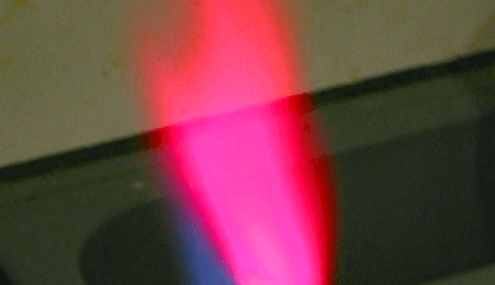Energy-dense solid-state Li-ion cells are safer
April 24, 2018
on
on

The Belgian research center Imec has produced a new type of solid-state Li-ion battery with an energy density of 200 Wh/L which can accept a charge of 0.5 C (i.e. 2 hours) and is electrically safe.
According to Imec, the development of this solid-state battery is an important milestone in the quest to replace batteries using present day wet lithium chemistry with a safer and more efficient alternative. Their aim by the year 2024 is to develop a battery with an energy density of 1 kWh/L and a charging time of 2 C (30 minutes). A key advantage of a solid-state electrolyte compared to fluid electrolyte is improved cell lifetime and inherent safe-operating characteristics.
Key to the production of this new battery is the development of the solid nanocomposite electrolyte with the property of high conductivity (up to 10 mS/cm). During manufacture the electrolyte starts out in a fluid state (making the manufacturing process compatible with existing battery production methods) before it solidifies. The prototype battery has achieved an energy density of 200 Wh/L with a charging rate of 0.5 C. A special feature of this solid-state electrolyte (unlike fluid electrolytes), is its compatibility with metallic lithium anodes, allowing it to reach a target energy density of 1 kWh/L. High energy density and speedy charging are the Holy Grail for electric vehicle manufacturers.
According to Imec, the development of this solid-state battery is an important milestone in the quest to replace batteries using present day wet lithium chemistry with a safer and more efficient alternative. Their aim by the year 2024 is to develop a battery with an energy density of 1 kWh/L and a charging time of 2 C (30 minutes). A key advantage of a solid-state electrolyte compared to fluid electrolyte is improved cell lifetime and inherent safe-operating characteristics.
Key to the production of this new battery is the development of the solid nanocomposite electrolyte with the property of high conductivity (up to 10 mS/cm). During manufacture the electrolyte starts out in a fluid state (making the manufacturing process compatible with existing battery production methods) before it solidifies. The prototype battery has achieved an energy density of 200 Wh/L with a charging rate of 0.5 C. A special feature of this solid-state electrolyte (unlike fluid electrolytes), is its compatibility with metallic lithium anodes, allowing it to reach a target energy density of 1 kWh/L. High energy density and speedy charging are the Holy Grail for electric vehicle manufacturers.
Read full article
Hide full article


Discussion (0 comments)